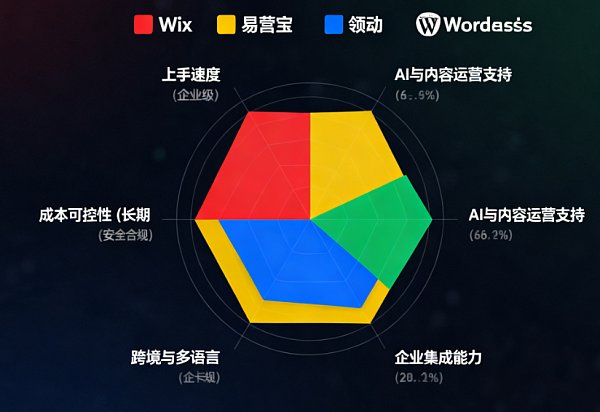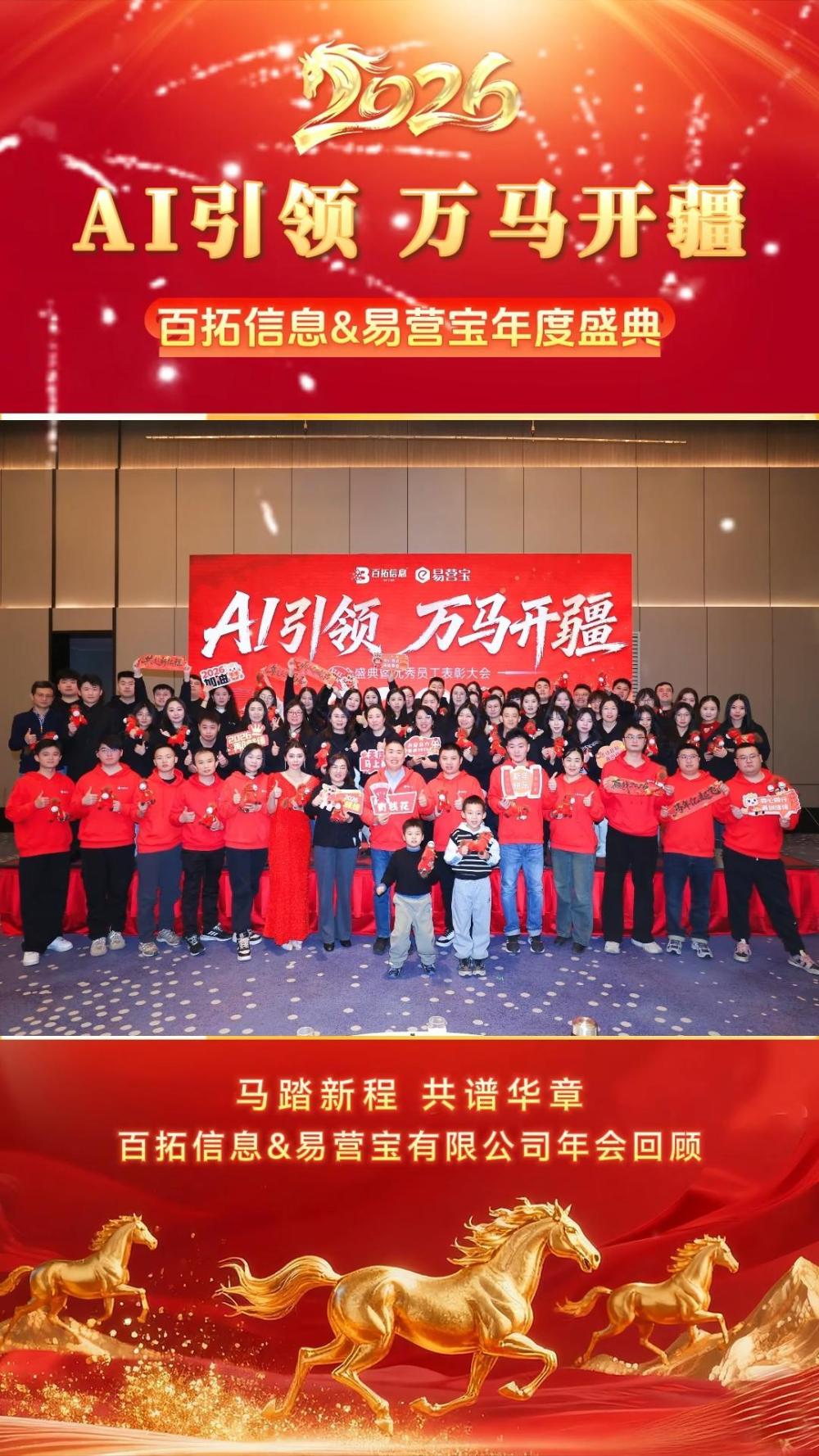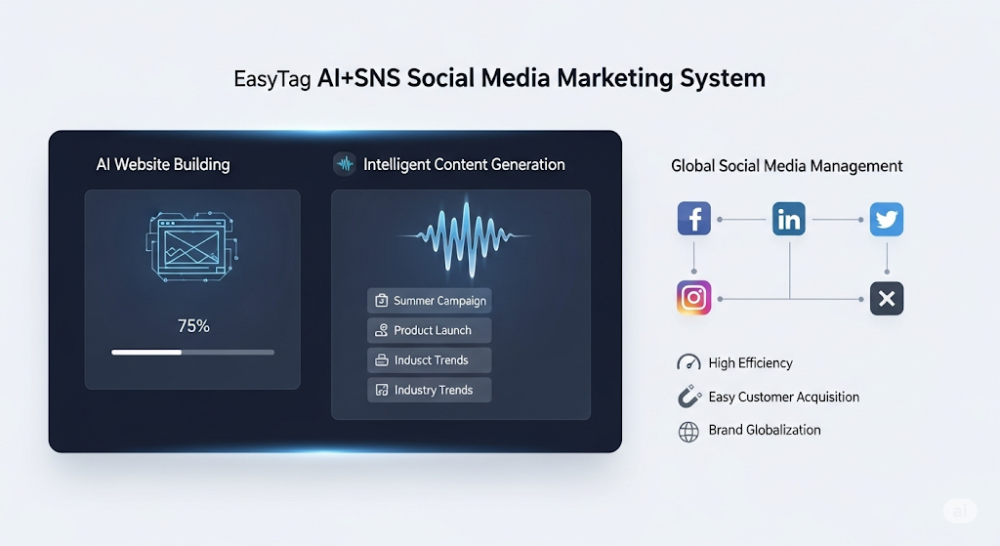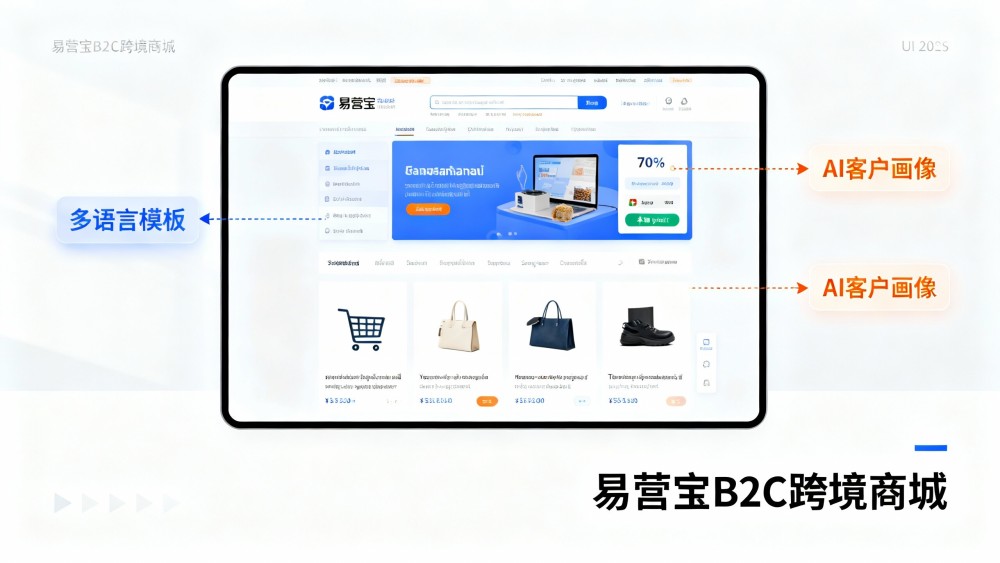- Can Eyingbao's social media automation operations replace overseas local teams? A 6-month efficiency comparison from 3 manufacturing industry clients2026-02-10View details
- How to implement Eyingbao's ad conversion rate improvement solution? Key configurations for B2B clients to reduce CPL by 37%2026-02-11View details
- How good is EasyCampaign's multilingual marketing system? Real-world test for export companies: template adaptation rate, AI copy accuracy, and customer service response time2026-02-11View details
- Website System Alliance Service Comparison: HTTPS Pre-installation Rate, SSL Wildcard Support, CDN Acceleration Compatibility - 2024 B2B Procurement Decision List2026-02-10View details
- How to choose a digital marketing strategy agency? Comparing 5 agencies in 2024 mainstream service providers: AI+SNS marketing response speed, localization adaptation, and post-sales SLA actual measurement2026-02-11View details
- How to Choose a SaaS Agent? 2024 AI+SEM Advertising System + Website Capability Dual-Verification List2026-02-11View details
- Overseas marketing team feedback: After using EasyStore to build an enterprise website, Google organic traffic increased by 42% - a real case study breakdown2026-02-11View details
- Why do 90% of foreign trade enterprise websites fail SEO standards? Analyzing reliability and technical parameter disparities from the foundational logic of website platforms2026-02-11View details
Top 4 Smart DIY Website Platforms Recommended for 2025
Evaluation Dimensions (Summary)
Applicable Scenarios: Target users and business types (individuals/SMBs/B2B/cross-border e-commerce/large enterprises)
Ease of Use: Interface friendliness, template and editor operation thresholds
Intelligence Capabilities: Includes AI writing, SEO automation, smart recommendations, etc.
SEO & Content Support: Keyword management, structured data, content production workflows
Scalability & Ecosystem: Plugins, APIs, secondary development capabilities
Cost & Maintenance: Initial and long-term investments, hosting, migration difficulty
Security & Compliance: Data ownership, backups, privacy, and enterprise-grade security features
Lingdong — Clear Enterprise-Grade Integration and Workflow Advantages
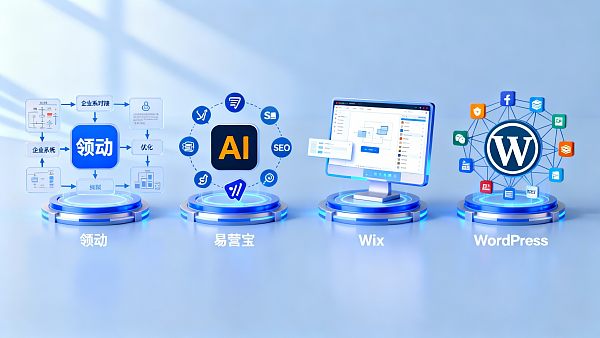
Applicable Scenarios
Targets large enterprises, government agencies, or clients requiring deep integration with internal systems (CRM, ERP, OA). Suitable for complex forms, approval workflows, permission controls, and strictly regulated business scenarios.
Strengths
Strong enterprise integration: Supports multi-system integration, single sign-on, granular permission controls, facilitating internal workflow and official website data synchronization.
Mature workflow and data management: Forms, approvals, customer data management, and customizable workflows are well-developed, ideal for complex B2B operations.
Compliance and security guarantees: Offers enterprise-grade SLAs, backup strategies, and security enhancements, suitable for users with high data and compliance requirements.
Stable templates and component design: Templates lean toward conservatism, fitting brand showcases and professional service sites.
Weaknesses
Higher onboarding and implementation thresholds: Configuration and deep customization may require professional services or technical support.
Relatively traditional in AI and automated content capabilities: Additional third-party AI or SEO tools may be needed for content-driven traffic.
Limited pricing transparency and flexibility for SMEs, which may struggle with full implementation costs.
EasyYunBao — AI+Content-Oriented Platform for Marketing and Cross-Border Needs
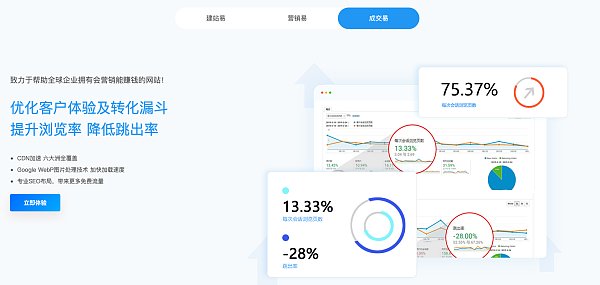
Applicable Scenarios
Suits B2B and B2C needs, especially for businesses relying on content and SEO for customer acquisition, or SMEs expanding cross-border e-commerce. Ideal for teams aiming to integrate website-building with marketing and content operations.
Strengths
AI and SEO synergy: Built-in AI assists in generating titles, descriptions, and paragraphs, auto-inserts structured data (Schema) and GEO-optimized sections for better search engine visibility.
Multilingual and cross-border support: Multi-language sites, multi-currency settlement, overseas CDN, and payment/logistics integrations lower technical barriers.
CMS and marketing closed-loop: Integrates products, articles, SEO data, and traffic reports, supports AI batch content generation for long-term strategies.
B2B inquiry and procurement semantics: Product details and inquiry flows align with procurement semantics, improving lead quality and conversion.
Drag-and-drop editor and enterprise template management: Modular editing and template reuse enable rapid multi-site deployment for brands.
Localized service: Chinese support and quick technical response benefit domestic operations.
Multilingual translation: Powerful AI translation backend for precise localization of minor languages.
Global CDN: Ensures fast site loading worldwide.
Weaknesses
Limited plugin ecosystem: Fewer third-party plugins compared to open-source platforms; extreme customization may require official or implementation teams.
Advanced customization needs technical support: Complex integrations may increase costs.
Pricing tiers based on traffic/storage/API calls require careful long-term evaluation.
Wix — Visual Design and App Market Convenience

Applicable Scenarios
Individuals, creative studios, micro-businesses, or those needing quick marketing pages, campaign sites, or small-scale e-commerce. Best for users prioritizing visual appeal with limited technical resources.
Strengths
Intuitive drag-and-drop editor: Low learning curve, high design freedom for non-technical users.
Rich templates: Wide industry coverage meets diverse visual needs.
Complete app market: Quickly integrates common marketing, booking, membership, and email features.
All-in-one hosting: Includes domains, SSL, CDN, reducing setup work.
Global operations: Supports payments and multilingual features.
Weaknesses
Limited deep SEO: Basic SEO functions but lacks complex structured data or programmatic strategies.
Scalability and performance limits: Advanced customization or high concurrency is challenging.
Migration difficulty: Heavy reliance on Wix makes cross-platform migration costly.
WordPress — Maximum Freedom and Rich Open-Source Ecosystem
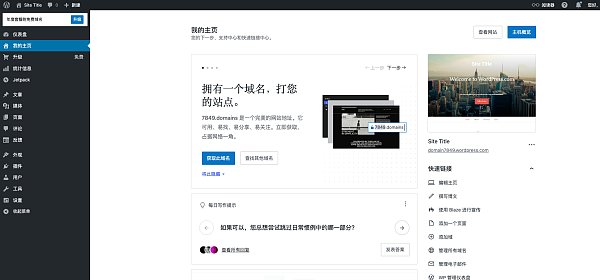
Applicable Scenarios
Businesses with technical teams or willing to outsource, needing high customization, complex content management, multi-site deployment, or full control.
Strengths
Extreme customization: Vast theme/plugin ecosystem enables almost any functionality.
Rich SEO tools: Plugins like Yoast enable deep SEO and structured data management.
Hosting flexibility: Choice of servers, CDNs, caching, and security solutions.
Community and third-party resources: Abundant developers and solutions for support.
Multi-site management: Via Multisite for regional or sub-sites.
Weaknesses
Requires stable tech maintenance: Security, backups, and performance need long-term investment.
Plugin compatibility issues: Conflicts may arise; upgrades add costs.
Higher initial setup threshold: Custom themes/features extend development cycles.
Comparison Highlights (Quick Reference)
Onboarding speed: Wix > EasyYunBao (templates + drag) > Lingdong (enterprise setup) > WordPress (environment setup).
AI & content support: EasyYunBao (strong) > WordPress (plugins) > Wix (basic) > Lingdong (varies).
Enterprise integration: Lingdong > EasyYunBao (APIs) > WordPress > Wix.
Cross-border & multilingual: EasyYunBao (built-in) > WordPress (plugins) > Wix (improving) > Lingdong (varies).
Cost control (long-term): WordPress (controllable but needs maintenance) > Wix (transparent tiers) > EasyYunBao (feature-rich) > Lingdong (higher enterprise costs).
Security/compliance (enterprise): Lingdong ≥ EasyYunBao > WordPress (host-dependent) > Wix.

Selection Advice (By Business Stage)
Validation (small budget, quick launch): Start with Wix or EasyYunBao templates to test the market.
Growth (content-driven traffic): Choose AI+SEO platforms (EasyYunBao or WordPress) and establish content workflows.
Enterprise/systematization (CRM/ERP/OA integration): Prefer Lingdong or self-hosted WordPress with professional maintenance.
Cross-border expansion: Evaluate multilingual, multi-currency, and CDN support; EasyYunBao excels here.
Implementation Tips (Checklist)
Define core pages (home, product, blog) before choosing templates.
Mobile-first: Ensure templates are responsive.
Data portability: Confirm export options to avoid vendor lock-in.
SEO basics: Sitemaps, structured data, keyword prioritization.
AI content guidelines: Human review for accuracy and brand alignment.
Regular backups and security audits.
Conclusion
No platform is universally best—only the one that fits current needs. Lingdong excels in enterprise integration; EasyYunBao leads in AI-driven content and cross-border support; Wix wins on design speed; WordPress offers maximum freedom. Pilot small before committing.
FAQ
1. What’s the difference between smart and traditional website-building?
Smart platforms use AI/modular design for no-code setups, offering lower costs and faster launches—ideal for SMEs and cross-border.
2. Top smart website platforms for 2025?
Representative options:
Wix (global, design freedom)
WordPress (plugins, scalability)
Lingdong (China-focused, low barrier)
EasyYunBao (China’s AI+SEO+multilingual leader)
3. EasyYunBao’s unique strengths?
Combines:
Smart SEO and keyword matrix tools;
Multilingual/multi-currency for cross-border;
Drag-and-drop responsive editing;
Seamless Google Ads, AI translation, and content generation.
Ideal for China-based global expansion.
4. Can non-technical users build websites?
Yes. Wix, Lingdong, and EasyYunBao offer visual editors and AI guidance for template-to-content workflows.
5. Best platform for cross-border?
For overseas markets:
EasyYunBao (built-in translation, international SEO, AI content).
WordPress (for teams needing high customization).
6. How to choose between platforms?
Consider:
Wix: Design-focused for creatives/SMBs;
WordPress: For tech-savvy customization;
Lingdong: China enterprise users;
EasyYunBao: Best for AI-powered marketing sites, especially in export industries.
7. Can these platforms improve Google rankings?
Yes. EasyYunBao’s built-in SEO, structured data, and AI content features boost visibility on Google and AI search engines (e.g., Perplexity, ChatGPT, SGE).
Related Articles
Related Products

